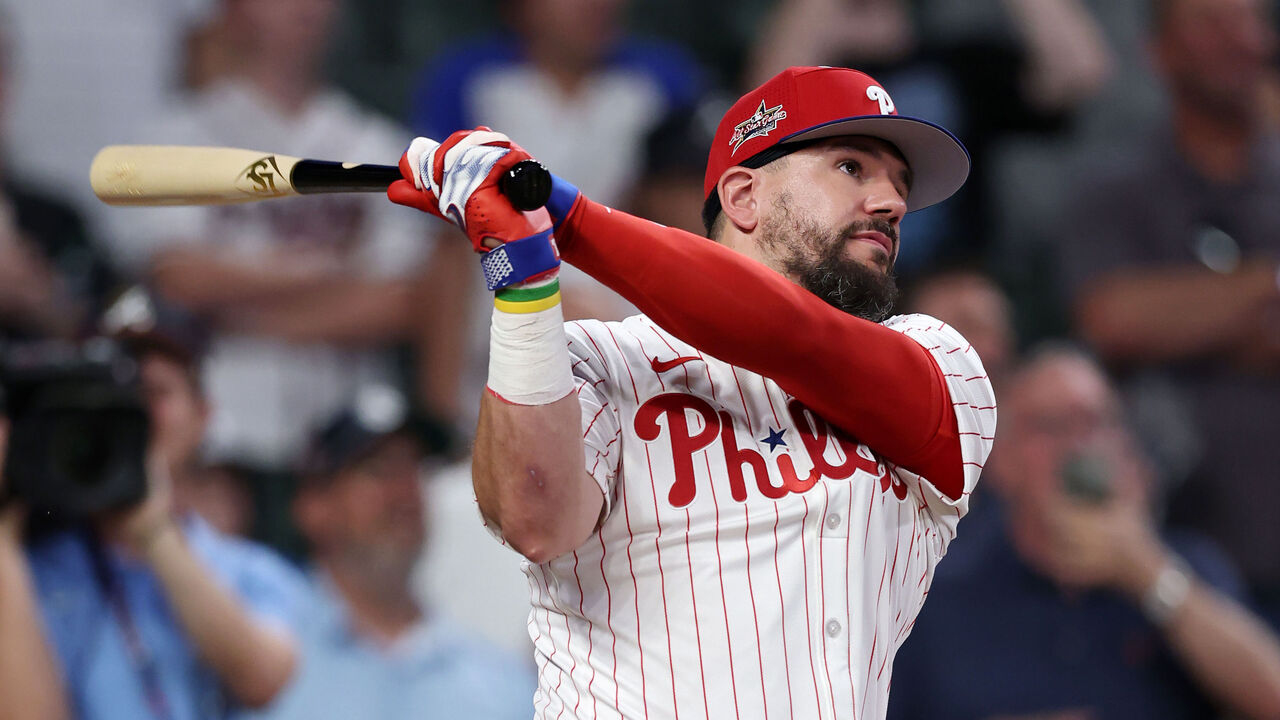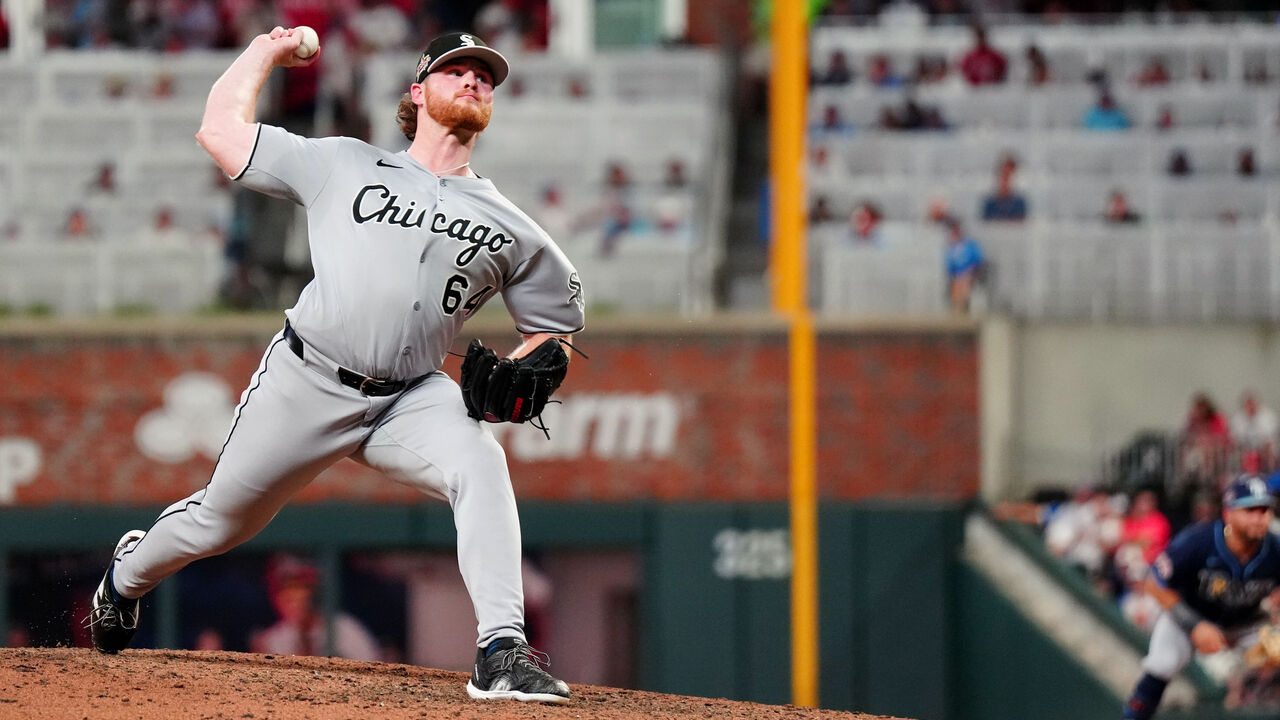MLB's All-Star Game can't decide what it wants to be
Pity poor Jonathan Aranda.
The Tampa Bay Rays first baseman, a 27-year-old with 21 career home runs in the majors, was handed the anchor position for the American League in the first-ever home run swing-off to decide an MLB All-Star Game.
He needed two homers in his three swings to put the AL in the lead, or one just to tie and bring up New York Mets slugger Pete Alonso for the NL. But Aranda hit two lazy fly balls and ripped a shot off the right-field wall, too low to clear the fences. No homers. Game over.
It was a strange end to the 95th Midsummer Classic, which didn't exactly live up to the last part of that title. The swing-off has been a possibility in the event of a tie game after nine innings since 2022, but it happened for the first time Tuesday night. It's so new that even the broadcasters didn't really know how to explain it. They weren't sure how or why the participants had been chosen - was Aranda one of the few guys who agreed to do it? - and speculated that big sluggers like Aaron Judge and Shohei Ohtani had left Truist Park, having been replaced in the lineup hours earlier.
Philadelphia Phillies star Kyle Schwarber blasted three home runs in the swing-off to power the National League to victory. He was named the game's MVP, even though swing-off stats don't count. Schwarber is thus the first MVP, one can say pretty confidently, to go 0-2 at the plate with a walk.

Kind of strange. But it was also very much in keeping with baseball's All-Star week, which has become a tentpole event for not only celebration, but also criticism and confusion.
The big controversy this year was the inclusion of Milwaukee Brewers pitcher Jacob Misiorowski on the NL roster - and not just because he's 6-foot-7. The rookie's made just five starts in the majors, and there was, naturally, much grumbling that he hadn't really earned his place.
Much of the noise came from Philadelphia, where Zack Wheeler earned an All-Star nod but declined to pitch, presumably expecting one of his Phillies teammates would replace him. Cristopher Sánchez has 19 starts and a 2.50 ERA; Ranger Suárez has 13 starts and a 2.15 ERA. Instead, the honor went to Misiorowski and his 103-mph heater.
Trea Turner of the Phillies called the rookie's selection "a joke" and said the All-Star Game was no longer about bringing the best players but about "whoever sells the most tickets or has been put on social media the most." Meow. His teammate Nick Castellanos said the game was now like a goofy exhibition of the sort put on by the barnstorming Savannah Bananas.
Misiorowski, who said the Phillies at the All-Star Game were "very nice" to him, fared just fine in the end, pitching a scoreless eighth inning that included a bunch of blistering fastballs.
But the bottom half of the inning invoked another one of the All Star Game's forever controversies as Shane Smith of the Chicago White Sox came in to pitch. The 25-year-old has a 4.26 ERA in 18 starts for a terrible team. By WAR, he's not even one of the 10 best players on the White Sox. But he's an All-Star because all 30 teams must have a participant. Smith wasn't the only player with a dubious case for being there, but in his brief appearance, he looked unsettled, and he promptly hit Arizona Diamondbacks third baseman Eugenio Suárez on the hand with a pitch. For a moment, Suárez looked like he might have really been hurt. He stayed in the game, although he couldn't take part in the later swing-off as originally planned. Smith looked like he wanted to hide.

If the All-Star Game is truly about being a fun showcase for the fans - which is basically the case for including a flame-throwing beanpole rookie - then why does MLB still insist on shoehorning in players from every team? Does anyone really believe that a lot of White Sox fans were watching the All-Star Game into the eighth inning, hoping to see their guy Shane take the mound?
Baseball can't quite accept that the game, which used to be a true competitive event, has devolved into a pure exhibition, with players routinely opting out. But if MLB is going to decide it with a contrived home-run competition where the managers are scrambling to find players willing to swing the lumber, then the league really ought to admit it doesn't need to represent every team. Just bring the best players - at least, the ones who are willing to play.
The quasi Home Run Derby that finished the event was, at least, an improvement on the one from the night before; for reasons only known to ESPN, the rounds were shown on a split screen that meant many of the actual home runs could not be seen on the broadcast. Which is, after all, kind of the point of a Home Run Derby.
It was one more thing to complain about in an All-Star Week that didn't lack for them.
Scott Stinson is a contributing writer for theScore.
HEADLINES
- Winter meetings live analysis: Breaking down the biggest rumors
- Report: Alonso to meet with Red Sox, Orioles this week
- Report: Nationals open to trading Abrams in addition to Gore
- Hall of Fame chair 'not surprised' Bonds, Clemens were denied entry
- Dodgers' Roberts 'hoping' Ohtani won't pitch for Japan in WBC